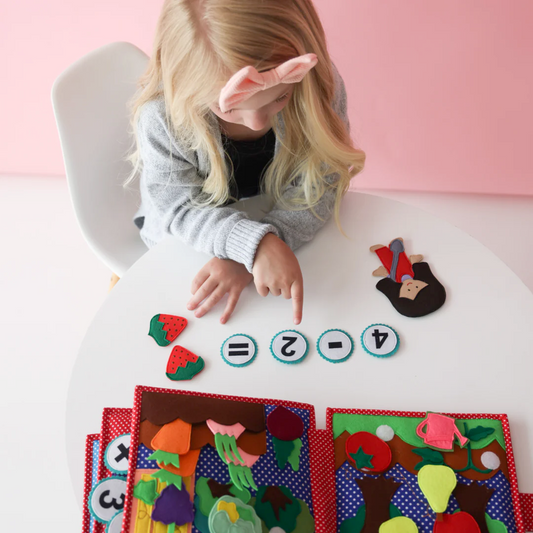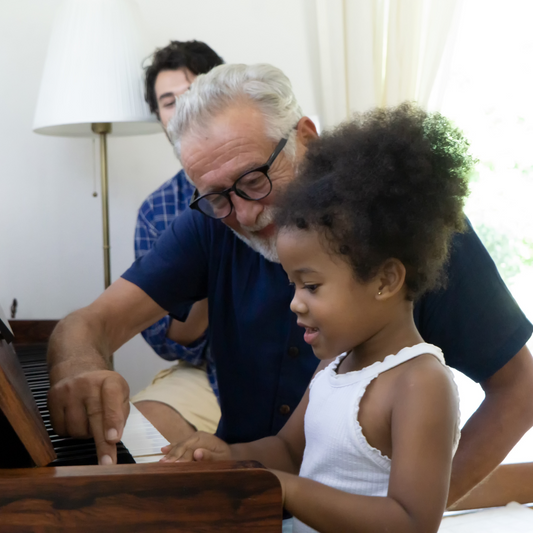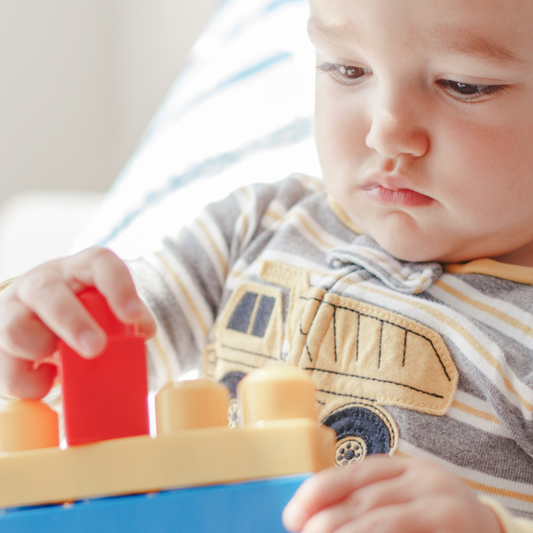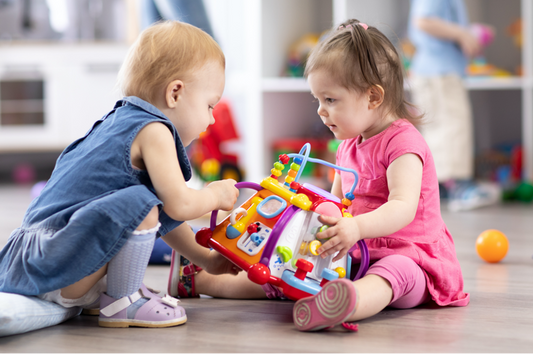Our Blog

Navigating the Storm: Conquering Mom Guilt
Motherhood, an extraordinary journey marked by love, laughter, and cherished memories, is not without its fair share of challenges. Among these challenges, one universal and often unwelcome companion stands out:...
Navigating the Storm: Conquering Mom Guilt
Motherhood, an extraordinary journey marked by love, laughter, and cherished memories, is not without its fair share of challenges. Among these challenges, one universal and often unwelcome companion stands out:...

Math in the Early Years
Why is early math important for toddlers and preschoolers? Early math skills play a crucial role in a child's overall development. It goes beyond counting and recognizing numbers; it lays...
Math in the Early Years
Why is early math important for toddlers and preschoolers? Early math skills play a crucial role in a child's overall development. It goes beyond counting and recognizing numbers; it lays...

Music grows the Brain!
Are you ready to have your mind blown? A study led by neurologist and neuroscientist Gottfried Schlaug found that professional musicians who started playing before the age of 7 have...
Music grows the Brain!
Are you ready to have your mind blown? A study led by neurologist and neuroscientist Gottfried Schlaug found that professional musicians who started playing before the age of 7 have...

Do you know - Brain Edition - brains are built ...
Did you know that the brain has sensitive periods where it is supercharged for certain skill sets? Sensory pathways peak in the first few months of life, whereas higher cognitive...
Do you know - Brain Edition - brains are built ...
Did you know that the brain has sensitive periods where it is supercharged for certain skill sets? Sensory pathways peak in the first few months of life, whereas higher cognitive...

A genius is made, not born!
5-minute read Have you heard of the Polgar Experiment? After studying hundreds of great intellectuals, Laszlo Polgar, a Hungarian psychologist, found a common theme: early and intensive specialization in a...
A genius is made, not born!
5-minute read Have you heard of the Polgar Experiment? After studying hundreds of great intellectuals, Laszlo Polgar, a Hungarian psychologist, found a common theme: early and intensive specialization in a...

When are children developmentally ready to share?
Learning to share with grace is a work in progress and takes time for small children. It is developmentally appropriate for young children not to share. Did you know in...
When are children developmentally ready to share?
Learning to share with grace is a work in progress and takes time for small children. It is developmentally appropriate for young children not to share. Did you know in...

